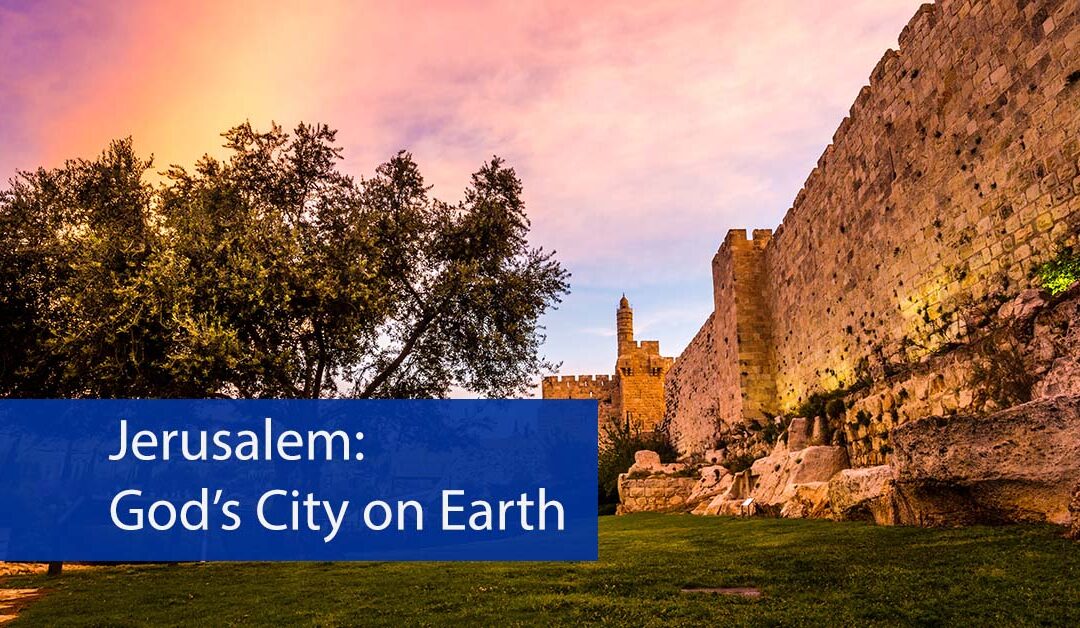The importance and role of the Holy City in Jewish life and worship unfold in the pages of Jerusalem’s history. The city seems always to have been exceptional—almost an oddity. Back in Joshua’s time, when the Israelites were battling to take the land of Canaan from its previous inhabitants and conquered Jerusalem, its name was omitted from the review of Joshua’s conquests. We see later in Joshua 15:63 that the tribe of Judah was unable to rid the village of the Jebusites who controlled it.
It remained that way until roughly 400 years later. After King Saul’s death on Mount Gilboa, David ceased to be a fugitive running for his life. When he became king, something important happened: God instructed him to establish his headquarters in Hebron in the midst of his own tribe. This is where the people of Judah anointed David king. Abner ruled over the northern tribes after Saul’s death, but after his murder, the elders of Israel made a pact with David and anointed him their king. The Prophet Samuel’s words had come to pass, and the nation of Israel was reunited under David’s leadership.
Now David needed a city from which to rule a united Israel. Jerusalem was ideally located. It stood on the border between the northern tribes and Judah, and more importantly, it had never been associated with any specific tribe of Israel. It would be the capital of all the tribes and a center for the worship of Yahweh, to whom David was deeply devoted. Determining this would be the seat of government, David and his men marched to Jerusalem. The Jebusites refused to take David’s challenge seriously. They had successfully held the Israelites at bay from their high perch before, why should things be different this time?
David, however, succeeded where others had failed. He used a water channel to get inside the Jebusite fortifications surrounding Jerusalem. In short order, he took the city and began to consolidate his people from the new capital. Hiram, King of Tyre, sent men and material to assist David in building a palace. David saw it all as God’s favor and understood that his rule as king was blessed for the sake of His people Israel. David’s success would go unchallenged, until the entry of the Philistines. They viewed David as just a renegade shepherd, who had been lucky in killing the giant Goliath, and set out to punish this upstart!
David soundly defeated them in two separate battles and sent them back to their fortresses along the southern coast. Afterward, David mustered his troops to escort the Ark of the Covenant to the fledgling capital. This was of vital importance to him. It was Yahweh, the God of Abraham, Isaac, and Jacob, who had brought David through his years of shepherding, Samuel’s anointing and prophecy, battling Goliath, Saul’s attempts to kill him, and his years of exile. Never had God forsaken him. Once David had settled in Jerusalem, it became the center for worship of the God of the Hebrews.
King David desired to build a Temple for the Lord he loved and revered, but the prophet Nathan told David that his warlike ways had made it inappropriate for him to carry out such a task. During his reign, although the Ark of the Covenant continued to dwell in a tent, it in no way hampered David’s enthusiasm in promoting the worship of Yahweh. Animals were sacrificed morning and evening, and the Sabbath was rigorously observed. Even today, David’s intimate relationship with his God and the worship that relationship evoked is preserved in the book of Psalms. Both Christians and Jews are deeply affected by the beauty and sense of awe of Almighty God that flows through its pages. Jerusalem is what it is—a center of worship and God’s city on Earth. No other reason can be offered for its importance.







